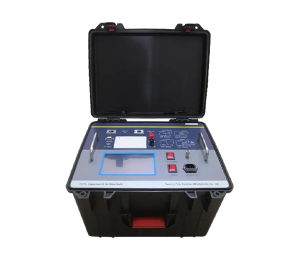 English
English



-
 Afrikaans
Afrikaans -
 Albanian
Albanian -
 Amharic
Amharic -
 Arabic
Arabic -
 Armenian
Armenian -
 Azerbaijani
Azerbaijani -
 Basque
Basque -
 Belarusian
Belarusian -
 Bengali
Bengali -
 Bosnian
Bosnian -
 Bulgarian
Bulgarian -
 Catalan
Catalan -
 Cebuano
Cebuano -
 China
China -
 China (Taiwan)
China (Taiwan) -
 Corsican
Corsican -
 Croatian
Croatian -
 Czech
Czech -
 Danish
Danish -
 Dutch
Dutch -
 English
English -
 Esperanto
Esperanto -
 Estonian
Estonian -
 Finnish
Finnish -
 French
French -
 Frisian
Frisian -
 Galician
Galician -
 Georgian
Georgian -
 German
German -
 Greek
Greek -
 Gujarati
Gujarati -
 Haitian Creole
Haitian Creole -
 hausa
hausa -
 hawaiian
hawaiian -
 Hebrew
Hebrew -
 Hindi
Hindi -
 Miao
Miao -
 Hungarian
Hungarian -
 Icelandic
Icelandic -
 igbo
igbo -
 Indonesian
Indonesian -
 irish
irish -
 Italian
Italian -
 Japanese
Japanese -
 Javanese
Javanese -
 Kannada
Kannada -
 kazakh
kazakh -
 Khmer
Khmer -
 Rwandese
Rwandese -
 Korean
Korean -
 Kurdish
Kurdish -
 Kyrgyz
Kyrgyz -
 Lao
Lao -
 Latin
Latin -
 Latvian
Latvian -
 Lithuanian
Lithuanian -
 Luxembourgish
Luxembourgish -
 Macedonian
Macedonian -
 Malgashi
Malgashi -
 Malay
Malay -
 Malayalam
Malayalam -
 Maltese
Maltese -
 Maori
Maori -
 Marathi
Marathi -
 Mongolian
Mongolian -
 Myanmar
Myanmar -
 Nepali
Nepali -
 Norwegian
Norwegian -
 Norwegian
Norwegian -
 Occitan
Occitan -
 Pashto
Pashto -
 Persian
Persian -
 Polish
Polish -
 Portuguese
Portuguese -
 Punjabi
Punjabi -
 Romanian
Romanian -
 Russian
Russian -
 Samoan
Samoan -
 Scottish Gaelic
Scottish Gaelic -
 Serbian
Serbian -
 Sesotho
Sesotho -
 Shona
Shona -
 Sindhi
Sindhi -
 Sinhala
Sinhala -
 Slovak
Slovak -
 Slovenian
Slovenian -
 Somali
Somali -
 Spanish
Spanish -
 Sundanese
Sundanese -
 Swahili
Swahili -
 Swedish
Swedish -
 Tagalog
Tagalog -
 Tajik
Tajik -
 Tamil
Tamil -
 Tatar
Tatar -
 Telugu
Telugu -
 Thai
Thai -
 Turkish
Turkish -
 Turkmen
Turkmen -
 Ukrainian
Ukrainian -
 Urdu
Urdu -
 Uighur
Uighur -
 Uzbek
Uzbek -
 Vietnamese
Vietnamese -
 Welsh
Welsh -
 Bantu
Bantu -
 Yiddish
Yiddish -
 Yoruba
Yoruba -
 Zulu
Zulu
Cost Analysis of Karl Fischer Titration Equipment for Moisture Measurement Applications
Understanding the Cost of Karl Fischer Titration Instruments
Karl Fischer titration is a precise chemical analysis technique used to measure the water content in a variety of samples. It is widely utilized in industries such as pharmaceuticals, food and beverage, petrochemicals, and many others. Given its critical importance in quality control and product formulation, the selection of an appropriate Karl Fischer titration instrument is essential. However, one of the primary considerations when investing in this equipment is its price.
Factors Influencing the Cost
The price of Karl Fischer titration instruments can vary significantly based on several factors
1. Type of Instrument There are two primary types of Karl Fischer titrators volumetric and coulometric. Volumetric titrators are typically more intricate as they involve a reagent delivery system, while coulometric titrators are known for their ease of use and are generally less expensive. The choice between these two can significantly influence the overall cost.
2. Brand and Manufacturer The manufacturer’s reputation can greatly affect the price. Established brands with a history of reliability and precision often charge a premium for their instruments. However, investing in reputable brands can lead to better service, support, and potentially longer lifespan of the equipment.
3. Features and Technology Modern Karl Fischer titrators come equipped with a range of advanced features such as automatic sample handling, integrated software for data management, and enhanced measurement capabilities. Instruments with higher specifications and automation typically carry higher price tags.
4. Capacity and Range The capability of the instrument to analyze a wide range of sample types and concentrations also plays a role in its cost. Instruments designed for high-capacity or specialized analysis may be significantly more expensive than basic models.
karl fischer titration instrument price

5. Accessories and Consumables Additional costs may arise from necessary accessories such as sample holders, titration cells, or consumables like titrant solutions. Some manufacturers may include these in the package, while others may require them to be purchased separately.
Typical Price Ranges
Prices for Karl Fischer titrators can vary widely depending on the aforementioned factors. On average, basic benchtop models may start at around $5,000 to $10,000. Mid-range models, equipped with some automation and advanced features, typically fall within the $10,000 to $20,000 range. High-end instruments, with fully automated systems and extensive capabilities, can reach upwards of $20,000 to $50,000 or more.
The Importance of Cost-Benefit Analysis
When considering the purchase of a Karl Fischer titration instrument, it is crucial to perform a cost-benefit analysis. While the initial investment can be significant, the potential return on investment (ROI) in terms of improved accuracy, increased productivity, and enhanced compliance can justify the cost. Additionally, the longevity and reliability of the instrument should be considered, as cheaper models may require more frequent repairs or replacements, ultimately leading to higher long-term costs.
Conclusion
Investing in a Karl Fischer titration instrument is a critical decision that directly impacts analytical capabilities and operational efficiency. While the price can range widely based on numerous factors including type, brand, and features, it is essential to understand that the cheapest option may not always provide the best value. By evaluating specific needs and performing a thorough cost-benefit analysis, organizations can make informed purchasing decisions that align with their operational goals and budget constraints. As analytical demands grow, having a reliable and precise mechanism for measuring moisture content is not just a luxury but a necessity in maintaining product quality and regulatory compliance.
-
Ensuring SF₆ Gas Safety: Introducing PUSH’s Integrated SF₆ Analyzer for Dew Point, Purity, and Decomposition MonitoringNewsJul.10,2025
-
Exploring the Main Types of Industrial Endoscopes and Their Applications Across IndustriesNewsJul.04,2025
-
Testing Equipment Industry Sees Major Advancements in 2025: Smart & Precision Technologies Lead the WayNewsJun.06,2025
-
Applications of Direct Current Generators in Renewable Energy SystemsNewsJun.05,2025
-
Hipot Tester Calibration and Accuracy GuidelinesNewsJun.05,2025
-
Digital Circuit Breaker Analyzer Features and BenefitsNewsJun.05,2025



